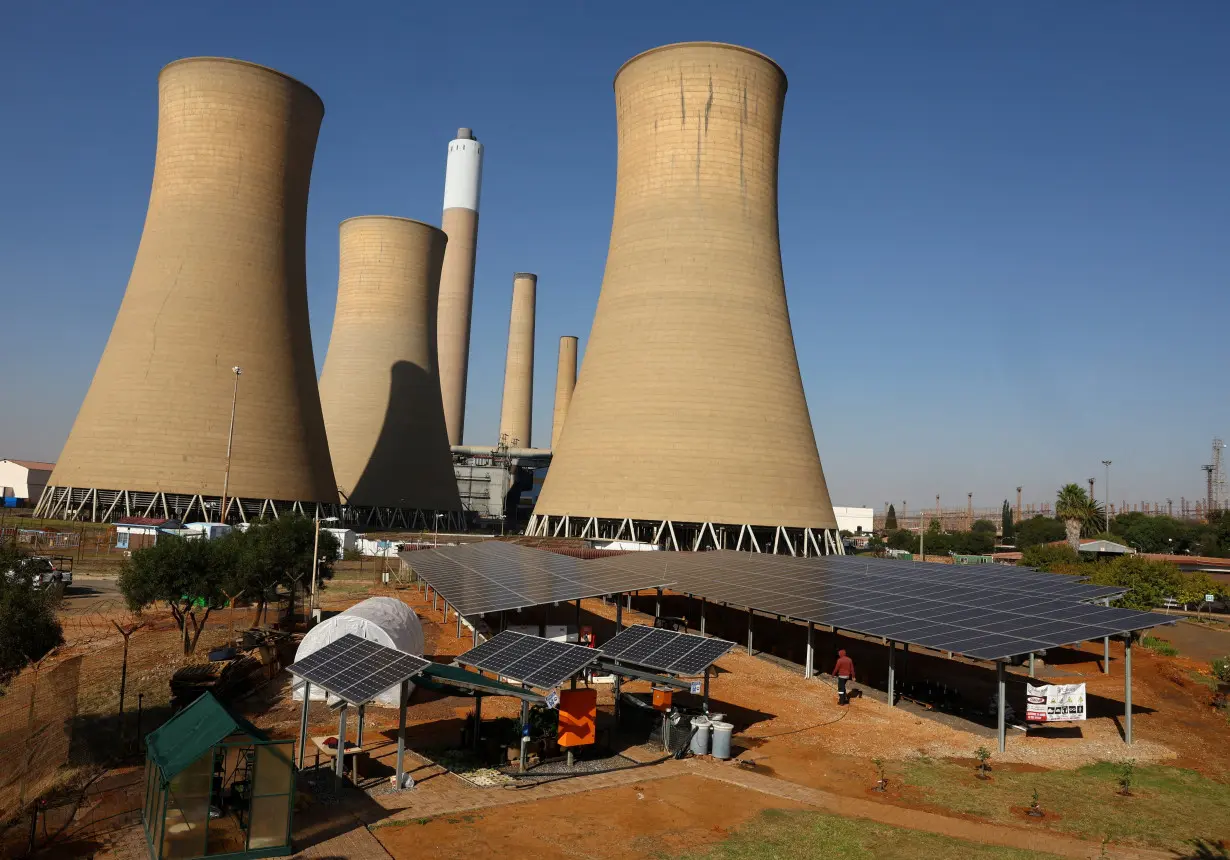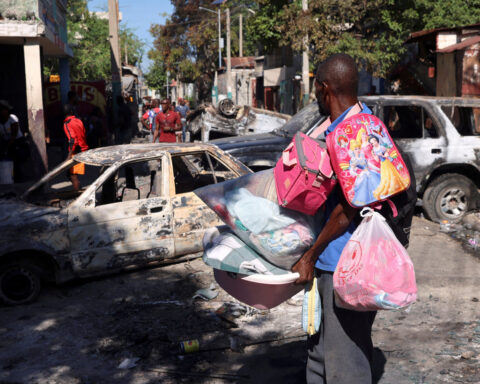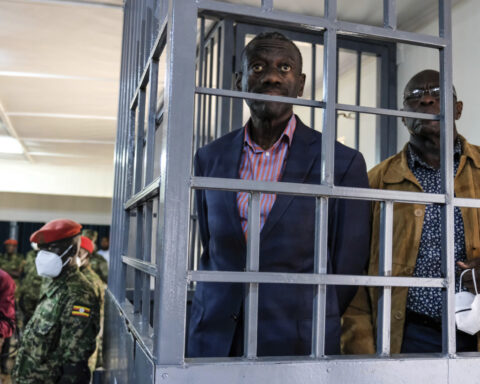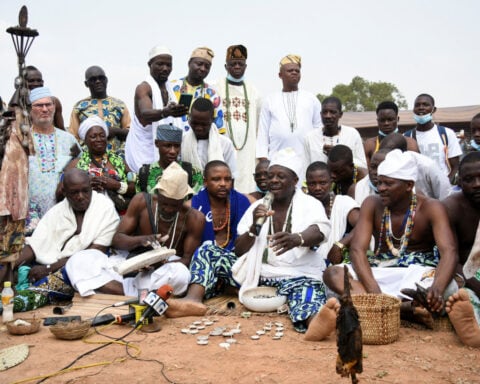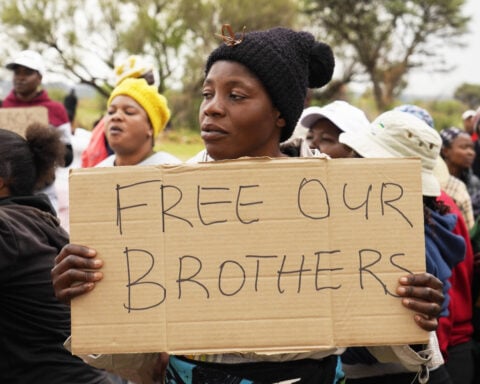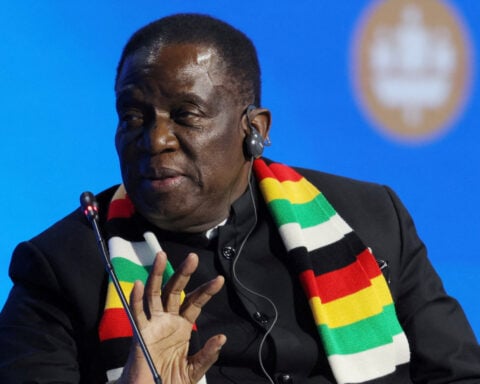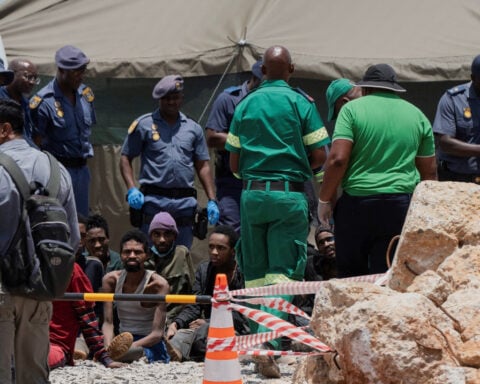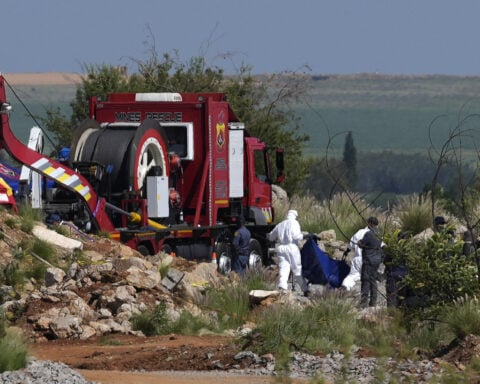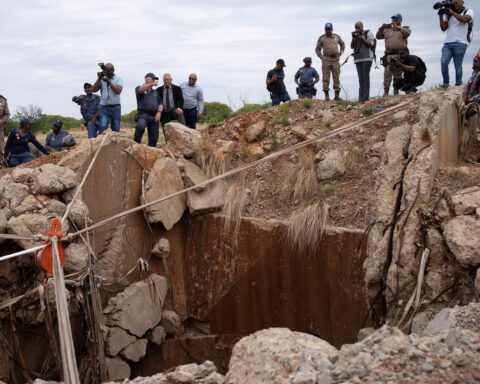By Tim Cocks
JOHANNESBURG (Reuters) - South Africa, the world's 14th biggest carbon emitter, has made strong commitments to climate action but is moving too slowly to wean itself off coal and roll out renewables to meet them, a key report said on Thursday.
Africa's most industrialised country has been lauded for making ambitious pledges to cut greenhouse gas emissions - which are higher even than far richer nations like France, Britain and Italy - and for producing a comprehensive plan to achieve them.
"Despite all the strong public support and policy commitments, we've got a huge discrepancy between that and what's actually happening," Melissa Fourie, one of the authors of the Presidential Climate Commission report, said at its launch in the commercial capital Johannesburg.
The report, commissioned by the president's office but independent, said a more than six-fold increase in the pace of renewables buildout was needed.
Several countries' actions globally are lagging behind their pledges.
President Cyril Ramaphosa signed a sweeping climate change act into law this week that set caps for large emitters.
Donors are providing $12 billion of mostly loans to fund South Africa's energy transition, a model they hope to export elsewhere in the developing world.
At the same time, the country has been firing up its coal burners to end years of power shortages. Last year, officials backtracked on pledges to shut down eight coal-fired power stations and have admitted South Africa will not meet its 2030 targets.
The report said total renewable capacity in South Africa was 10.4 gigawatts (GW) in 2022, growing by 1 GW per year since 2015. To meet net zero by 2050, however, it would need between 190 GW and 390 GW, requiring between 6 GW and 14 GW per year.
The report blamed "contradictory public policies ... particularly regarding the future of the energy
sector," adding: "The lack of consensus about the pace of the coal phaseout is delaying the ... the transition".
It added that investment was far below what was required, with 131 billion rand ($7.09 billion) a year being committed, against the 334 billion to 535 billion needed.
($1 = 18.4799 rand)
(Reporting by Tim Cocks; Editing by Alexandra Hudson)

 TikTok seeks to reassure U.S. employees ahead of Jan. 19 ban deadline
TikTok seeks to reassure U.S. employees ahead of Jan. 19 ban deadline
 US won't seek charges in unarmed Black motorist Ronald Greene's fatal 2019 arrest
US won't seek charges in unarmed Black motorist Ronald Greene's fatal 2019 arrest
 Euro zone households could increase consumption, ECB chief economist says
Euro zone households could increase consumption, ECB chief economist says
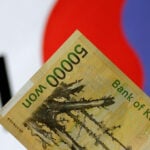 Foreigners sold South Korean equities last month by most since early 2020
Foreigners sold South Korean equities last month by most since early 2020
 Trump and Biden national and homeland security staff will meet Wednesday for threat exercises
Trump and Biden national and homeland security staff will meet Wednesday for threat exercises
 As fires ravage Los Angeles, Tiger Woods isn't sure what will happen with Riviera tournament
As fires ravage Los Angeles, Tiger Woods isn't sure what will happen with Riviera tournament
 Antetokounmpo gets 50th career triple-double as Bucks win 130-115 to end Kings' 7-game win streak
Antetokounmpo gets 50th career triple-double as Bucks win 130-115 to end Kings' 7-game win streak
 No 97 Laura Siegemund upsets Olympic champion Zheng Qinwen at the Australian Open
No 97 Laura Siegemund upsets Olympic champion Zheng Qinwen at the Australian Open
